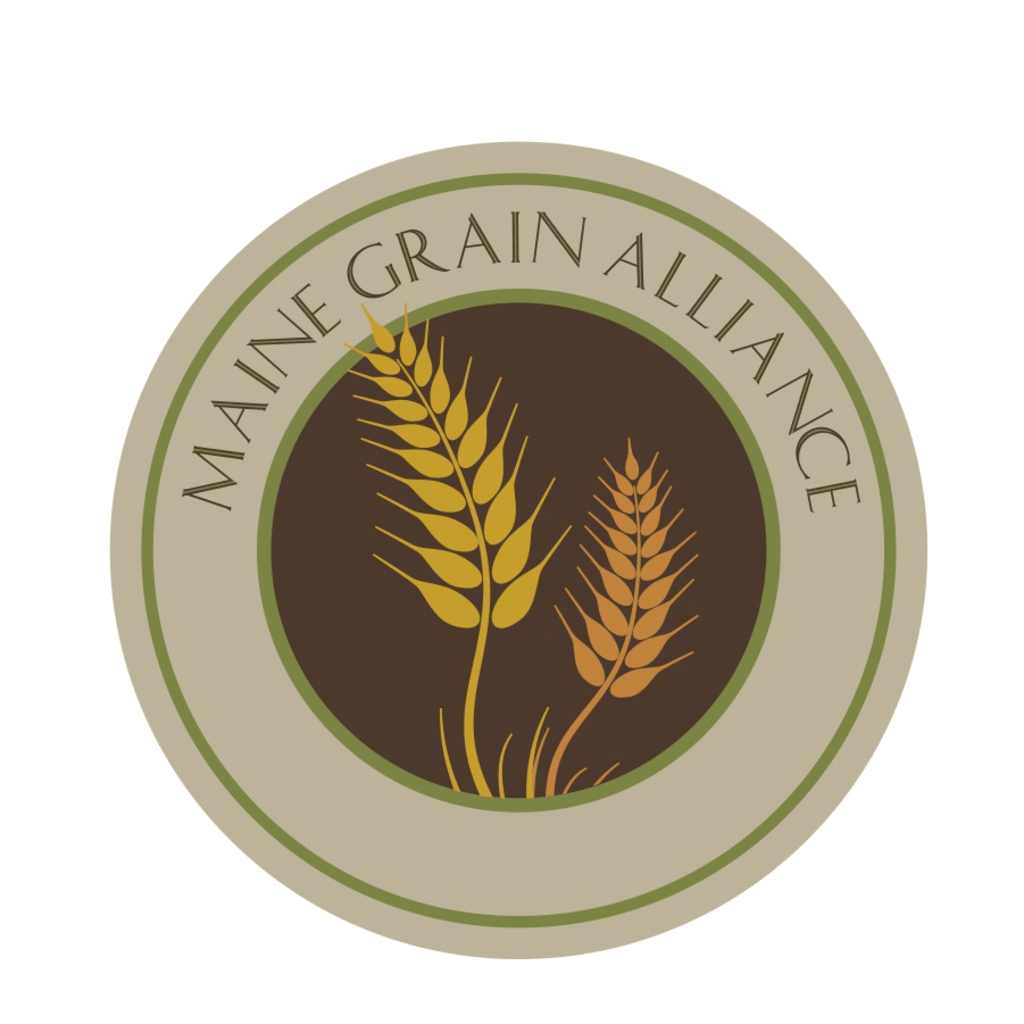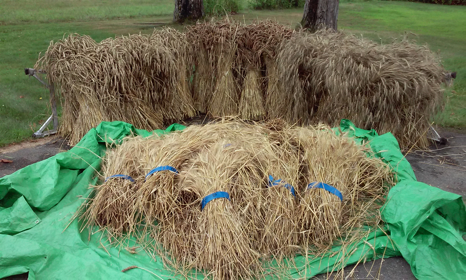Harvesting grain with a sickle and gathering it into sheaves is a very satisfying task. It is also very time consuming. It is also a pain in the…back. When you’re working with small plots it’s really the only way to do it. I have a very nice scythe, but I haven’t made a grain cradle for it yet so I use one of my two sickles. I have a very sharp smooth bladed one and a serrated one. The one with the teeth works best for me, and I bought it at a yard sale for only $2.
If the Maine Grain Alliance didn’t own a mini-combine I’m sure I would make -or would have made- a grain cradle for my scythe and I would be very good at using it. However, (and thank goodness) we do have a mini-combine so harvesting larger plots is now practical.
We searched around for a small grain combine and found a BOAZ, a Chinese built rice harvester that works great. The only way to describe it is by using the word ‘contraption.’ That is usually the first word that anyone uses when they first see it. The front of this contraption has the familiar revolving paddle-wheel rakes that pull in the grain to a spinning drum that feeds the grain heads to a thresher that separates the seeds from the chaff. The operator rides on a tractor seat holding onto handlebars while a small gas engine powers noisy chains that drive the whole thing thru the amber waves of grain. Amazingly enough, it works.
I started using the combine on a 1/3 acre plot at my place. Next I moved it down to the acre of Sirvinta at Taylor Field in Skowhegan. Jim Amaral of Borealis bread came and took photos for a book he’s writing.He had a grin on his face the whole time. That’s usually the reaction from people when they see the BOAZ in action.
Everything worked fine there until I ran into a section that had a lot of milkweed in it. The BOAZ is designed to cut off just the head of the grain and heavy material can clog things up. The heads of wheat at each of these first two plots were nice and full and I had good yields. However, results weren’t so great at our other sites. In Mercer, the field was visited by turkeys just after planting last fall and the yield there was meager, and the 2 acres field on the Kennebec in Solon became infested with purple vetch and I was constantly unclogging the machine. So we didn’t get the total yield we had expected but the results were great where we had weed free and predator free fields. I have all the Sirvinta cleaned now and have over 1200 lbs which will be re-planted soon. We hoping for an even better yield next year.

